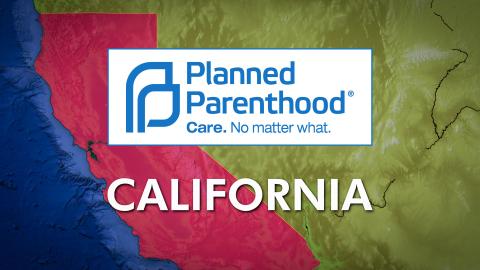
CA Planned Parenthood Preps for Huge Abortion Surge as State Aims to Become Top Abortion Hub
Planned Parenthood clinics in California are preparing for a potential massive rise in women seeking abortions from other states around the country if the U.S. Supreme Court overturns Roe v. Wade as expected this summer.
As CBN News has reported, California is moving to dramatically expand and fund the number of abortions performed in the state. It is nationally known for its abortion-friendly laws and policies and is positioning itself to serve as an abortion destination for women in states that would implement abortion bans in a post-Roe America.
***Please sign up for CBN Newsletters and download the CBN News app to ensure you keep receiving the latest news from a distinctly Christian perspective.***
California has even set up its own advisory Future of Abortion Council, a coalition of 40 pro-abortion groups whose goal is "to Protect, Strengthen, and Expand Abortion Services in California."
Democrats in the state assembly also are working to pass several new laws to expand abortion access.
They have written 13 bills that would authorize more medical providers to perform abortions, create scholarships for reproductive care doctors, block other states from accessing some California medical records, and create a fund for taxpayer money to help pay for women in states where abortion is illegal to come to California to get the procedure. A measure that makes abortions cheaper by banning co-pays and deductibles has already been signed into law.
KCRA-TV reports Planned Parenthood Mar Monte, which operates roughly 30 abortion centers in the state, said it has been working to make sure it can handle the potential increased demand. The abortion providers are busy hiring more doctors and adding space to receive a predicted surge in patients.
Mar Monte, the nation's largest Planned Parenthood affiliate, is renovating and building new facilities in Oakland, San Jose, Fresno, Visalia, and Reno, Nevada. When they're finished, it will boost their capacity from 200 to 500 patients per week.
As the post-Roe aftermath shakes out, the San Francisco Chronicle predicts California could even end up boasting nearly 30% of the nation's abortion clinics.
Meanwhile, pro-life advocates are getting ready, too, by bolstering staffing and support at crisis pregnancy centers. These centers, which are often located near abortion clinics and are faith-based, seek to convince women to forego abortion for adoption or other options.
Some of these centers in conservative states receive tens of millions of dollars in public money. California has been hostile to these centers, passing a law requiring them to advertise for abortion by telling clients about abortion services. The U.S. Supreme Court struck down that law in 2018.
"People of faith and the pro-life community can really help to put our money where our mouth is," said Jonathan Keller, president, and CEO of the California Family Council, which opposes abortion. "No woman should ever feel like abortion is the best option for them."
On Thursday, Democrats in the California state legislature fast-tracked a bill that would block other states' laws from imposing civil or criminal penalties on people who provide or aid abortions in California, setting up another likely prolonged legal fight over state sovereignty.
The California Legislative Women's Caucus has asked Gov. Gavin Newsom (D) for $20 million to help pay for women from other states where abortion would be outlawed to come to California for the procedure — a sum the governor could announce in his revised budget proposal next week.
Newsom has said The Golden State will become a sanctuary for women seeking an abortion from several states across the country.
"Our responsibility is to others, not just to the few 40 million proud Californians, but others and so we'll have to do more. We'll have to do better," Newsom said.
California's legislative efforts represent the opening salvos in the next phase of the abortion rights battle, which will play out among state governments that are left to make and enforce their own rules if the federal abortion guarantee is abolished. Already, Republican-led states like Oklahoma and Idaho have passed more restrictive abortion laws in anticipation of the court's ruling.




